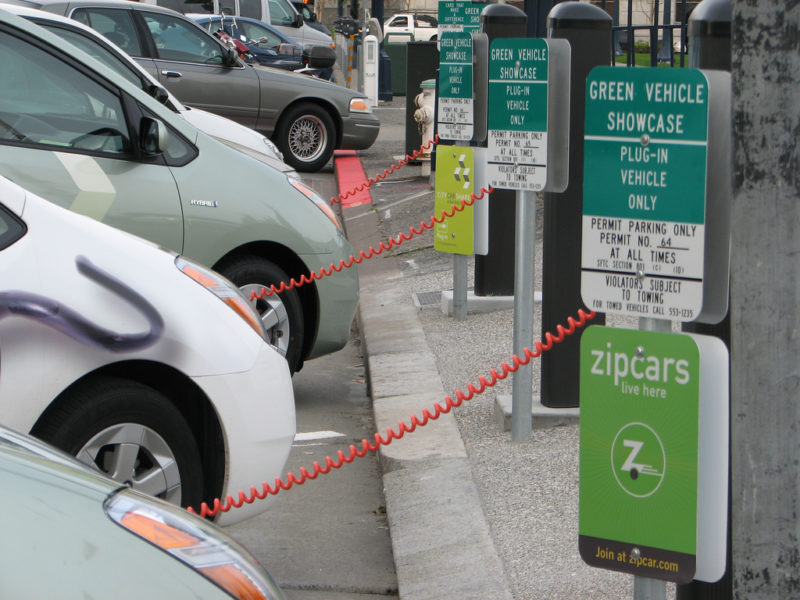JEFFERSON CITY, Mo. – A new ruling from the Missouri Court of Appeals could put the issue of regulating electric vehicle charging stations back in the hands of the Missouri Public Service Commission.
The ruling stems from the rate case for Kansas City Power and Light (KCPL), with the company appealing to the courts after the PSC back in May of 2017 ruled that the commission lacked the statutory authority to regulate the EV charging stations because they are not used for the purpose of supplying electricity for light, heat, or power. KCPL had been seeking recovery of costs related to the company’s Clean Charge network, which is comprised of EV charging stations in the Kansas City area, owned and operated by KCPL.
“The Commission finds that EV charging stations are not ‘electric plant’ as defined in the statute because they are not used for furnishing electricity for light, heat, or power,” the Commission stated in their ruling. “EV charging stations are facilities that use specialized equipment, such as a specific cord and vehicle connector, to provide the service of charging a battery in an electric vehicle. The battery is the sole source of power to make the vehicle’s wheels turn, the heater and air conditioner operate, and the headlights shine a light. The charging service is the product being sold, not the electricity used to power the charging system.”
The commission did, however, ask KCPL to collect data regarding the appropriate electric rate to charge owners of EV charging stations and provide that information during its next general rate case.
In a ruling issued by the Court of Appeals on Wednesday, dealing with two issues raised by KCPL, the court rejected KCPL’s challenge of the PSC’s decision to not allow the company to adjust the electrical consumption during the test year used in the rate case, but sided with the company on the issue of EV charging stations, saying the commission had erred in its evaluation, and reversed that portion of the report and order, remanding it back to the PSC.
Part of the court’s reasoning for this was explained in the ruling, saying that the stations operate similarly to self-service gasoline stations. It’s the fuel that powers the vehicle, the court contends, and the station is the sale of electricity to the vehicle owner to use and said that while electricity is used to charge a battery, rather than immediately operate a machine, it does not convert the transaction into a service.
You can read the full decision below:
 Loading...
Loading...
Benjamin Peters was a reporter for The Missouri Times and Missouri Times Magazine and also produced the #MoLeg Podcast. He joined The Missouri Times in 2016 after working as a sports editor and TV news producer in mid-Missouri. Benjamin is a graduate of Missouri State University in Springfield.












